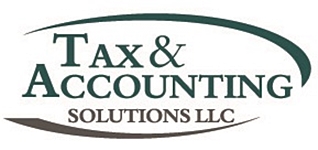Tax-Planning Tips for 2017
 Big changes may be on the way for the 2017 tax year. Thankfully, you can ensure your finances stay in line with your expectations by planning ahead. With the right approach, you can keep your taxable income low to reduce your obligations and keep more of your earnings. Here are five smart planning tips you can utilize immediately.
Big changes may be on the way for the 2017 tax year. Thankfully, you can ensure your finances stay in line with your expectations by planning ahead. With the right approach, you can keep your taxable income low to reduce your obligations and keep more of your earnings. Here are five smart planning tips you can utilize immediately.
Organize Your Document Storage System
Without documentation, you may discover that you are unable to apply certain deductions or credits to your taxes. Although you do not need the documentation to make the claims, the paperwork is absolutely required if your taxes trigger an audit. Without physical proof backing your financial claims, your auditor may reverse your credits or deductions, leaving you with a high tax bill. Avoid this situation by developing a seven-year tax filing system for your important documents. Place all of your invoices, receipts, paystubs and other financial documents into the file for the applicable year to adequately cover your bases.
Review Potential Credits and Deductions
Maximizing your credits and deductions is a solid way to reduce your overall tax obligations and even potentially qualify for a refund. As a homeowner, for example, you can maximize your credits by making energy efficiency upgrades to your property. Students are given the opportunity to deduct tuition, fees and student loan interest, plus take education credits to further reduce tax burdens. Having kids, getting married, buying vehicles and acquiring medical care can all net you credits or deductions on your taxes. You must review the requirements for each tax program to ensure you meet the guidelines as you complete your education, home improvements or other qualifying activities.
Sock Away Cash in a Retirement Account
You can decrease your taxable income in a meaningful way by diverting funds from your paycheck to a qualifying individual retirement account (IRA). Employer-matched retirement accounts will maximize your income the most, but you can also use a privately-sourced traditional retirement account to contribute pre-tax funds. If you open a Roth IRA, however, taxes will apply to your initial contributions. Traditional IRAs only require tax payments when you take withdrawals from the account.
Maximize Your Charitable Contributions
If your earnings are pushing you out of your preferred tax bracket, consider making substantial charitable contributions before the end of the year. By donating goods or funds to charity, you can help a noble cause rather than sending a rather large tax payment directly to the IRS. You will need to acquire a detailed receipt for every charitable contribution you make to be able to apply it as a deduction on your taxes.
Enlist Professional Assistance
The absolute best way to ensure your tax plans remain on course is by enlisting the help of an Enrolled Agent. Enrolled Agents are tax experts who use their experience and knowledge to apply the current tax rules as they are written. We will accurately run the numbers to ensure you receive all of the deductions and credits that apply to your situation. You can avoid an audit while dramatically minimizing your tax obligations by assigning this important task to an Enrolled Agent.

